CCC Events
 Grand Challenges for the Convergence of Computational and Citizen Science Research
Grand Challenges for the Convergence of Computational and Citizen Science Research
April 8-9, 2025 · Washington DC
CCC is hosting a two-day visioning workshop to explore how humans and machines may team up to solve some of the most pressing scientific problems through citizen science, crowdsourcing, and community-engaged science.
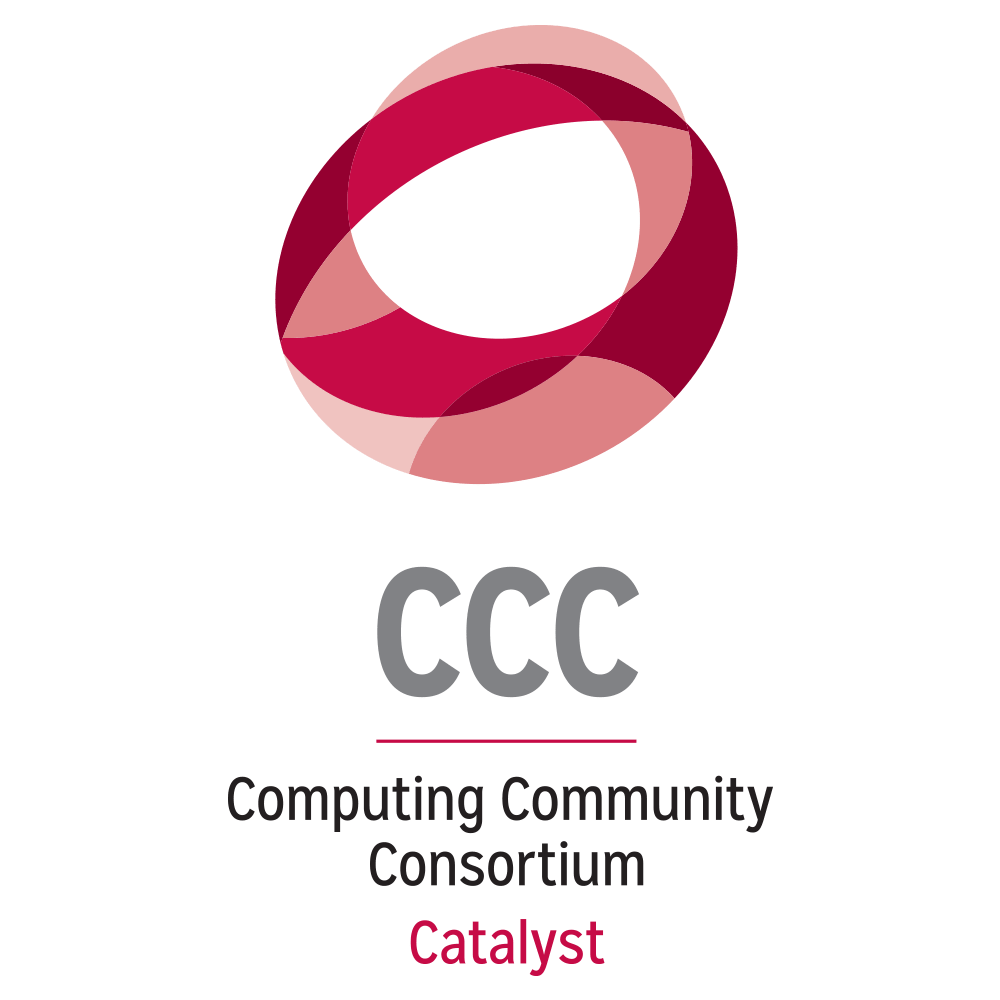 Next Steps in Neural Interfaces: Defining the Role of Computing Research
Next Steps in Neural Interfaces: Defining the Role of Computing Research
April 22-23, 2025 · Washington, DC
The goal of this workshop is to establish a computing research community working at the forefront of neural interface design, and integrate it into the broader ecosystem in this field. This is done by creating roadmaps of neural interface applications, their computational needs, and identifying how hardware and software must evolve to meet those needs, as well as envisioning how computing advances can re-imagine the possibilities in neural interfacing.
 Supporting At-Risk Users through Responsible Computing
Supporting At-Risk Users through Responsible Computing
December 9-10, 2024 · Washington DC
CCC is hosting a two-day visioning workshop to develop a cohesive roadmap for tackling the grand challenges related to technology and at-risk users that will be on the horizon for the next five to ten years.
 Future of Information Retrieval Research in the Age of Generative AI
Future of Information Retrieval Research in the Age of Generative AI
July 19-20, 2024 · Washington DC
CCC hosted a two-day visioning workshop following the ACM SIGIR 2024 conference to explore the dynamic landscape of IR and AI, and anticipate future societal impact and needs.
 Artificial Intelligence/Operations Research workshop III
Artificial Intelligence/Operations Research workshop III
March 21-22, 2024 · CRA Office Conference Center
CCC held a visioning workshop on March 21-22 in Washington, DC to exploit the synergies of the AI/OR fields.
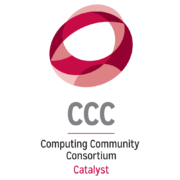 The Future of Research on Social Technologies
The Future of Research on Social Technologies
November 2-3, 2023 · The Watergate Hotel
This CCC workshop brought together scholars from multiple disciplines to reflect on key findings in the field of social technologies and to create a roadmap for future research.
 Future of Pandemic Prevention and Response
Future of Pandemic Prevention and Response
September 20-21, 2023 · Graduate Ann Arbor
In this workshop, participants discussed and summarized challenges and envisioned computational opportunities related to forecasting and disease spread; disease evolution; automated notification systems; logistics and supply allocation; interventions and vaccination proof; and genomic medicine to ensure we are more prepared for the next pandemic. Included in the workshop agenda was a pandemic emergency simulation designed to help participants determine what computational tools exist and are useful, and the gaps that researchers at the intersection of computing and health are in the unique position to fill.
 Systems and Applications Challenges for the Emerging Bazaar of Accelerators
Systems and Applications Challenges for the Emerging Bazaar of Accelerators
August 9-10, 2023 · Washington, DC
The slowing of Moore’s law and the end of Dennard scaling has reduced the dominance of general purpose processor architectures. Accelerators and other approaches optimized for specific operations and data structures have been developed as the go-to alternative. This CCC workshop focused on the opportunities, challenges, and questions which arises from this shift.
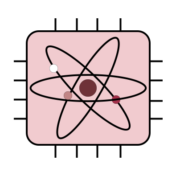 5 Year Update to the Next Steps in Quantum Computing Workshop
5 Year Update to the Next Steps in Quantum Computing Workshop
May 18-19, 2023 · Viceroy Washington DC
The CCC held the Next Steps in Quantum Computing Workshop in May of 2018. The 5 Year Update workshop addressed the innovations and technological strides that have taken place since then, and discussed what research needs to be done in the future.
 Community-Driven Approaches to Research in Technology & Society
Community-Driven Approaches to Research in Technology & Society
May 8-9, 2023 · Sofitel Washington DC Lafayette Square
The focus of this visioning activity was to catalyze the research community by enabling conversations between computing researchers and those that are impacted by artificial intelligence systems. Through active participation, participants were given the opportunity to better understand the research opportunities that will create improved systems for the users who are impacted by the systems. Participatory research is a growing area in computing, leading to the creation of an outline of how community partners and researchers can effectively and ethically work together to conduct community-driven research.
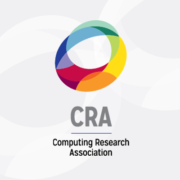 Accessible Technology for All
Accessible Technology for All
February 22-23, 2023 · Hyatt Park Hotel Washington, D.C. and Zoom
The purpose of this workshop was to convene academic, industry, and government representatives to vision ways to make all technology accessible and why that is important and necessary for society as a whole.
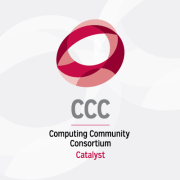 Building Resilience to Climate Driven Extreme Events with Computing Innovations: A Virtual Convergence Accelerator Workshop
Building Resilience to Climate Driven Extreme Events with Computing Innovations: A Virtual Convergence Accelerator Workshop
November 10, 2022 · Online Virtual Meeting
During this virtual meeting we discussed the outline draft for an NSF Convergence Accelerator track which we developed during the in-person Building Resilience to Climate Driven Extreme Events with Computing Innovations: A Convergence Accelerator Workshop.
 Building Resilience to Climate Driven Extreme Events with Computing Innovations: A Convergence Accelerator Workshop
Building Resilience to Climate Driven Extreme Events with Computing Innovations: A Convergence Accelerator Workshop
October 27-28, 2022 · The Brown Palace Hotel and Spa
Through this workshop we identified computing building blocks needed to facilitate and expedite technological innovation in multiple impact areas. We focused on a subset of the impact areas identified in the CCC white paper on computing research for the climate crisis: Energy, Environmental Justice, Agriculture, and Transportation.
 Mechanism Design for Improving Hardware Security
Mechanism Design for Improving Hardware Security
August 24-25, 2022 · The Watergate Hotel
At this workshop, participants investigated ways to improve the design and uptake of hardware security mechanisms. In addition to looking at traditional technical solutions, the workshop also considered new mechanisms to incentivize designers, system integrators, and users to create and maintain security of their systems. The workshop brought together hardware and software security experts and economists and experts in devising and implementing governmental policies.
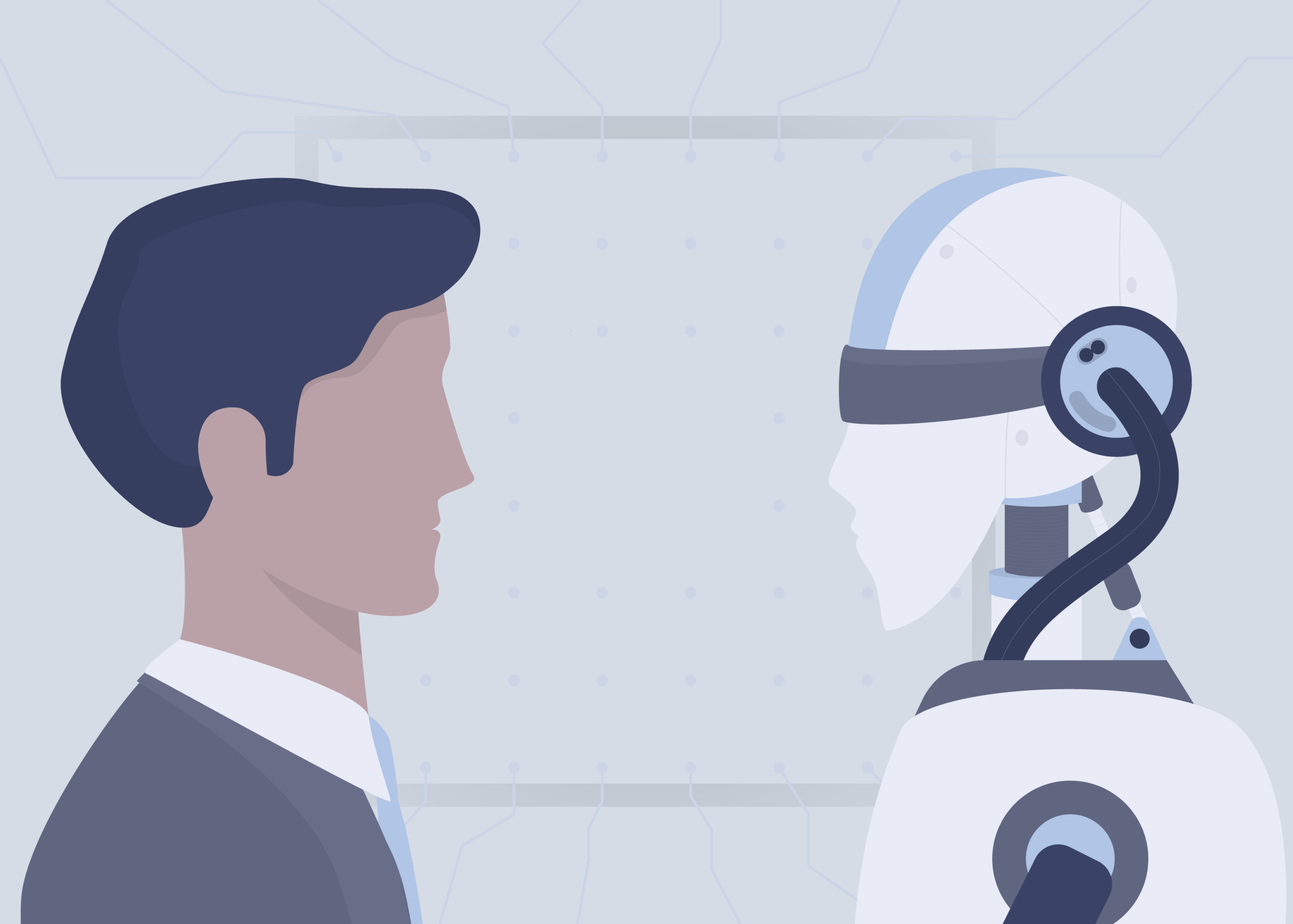 Artificial Intelligence / Operations Research Workshop II
Artificial Intelligence / Operations Research Workshop II
August 16-17, 2022 · Georgia Tech Hotel and Conference Center
The CCC held a visioning workshop on August 16-17 in Atlanta, Georgia to exploit the synergies of the AI/OR fields.
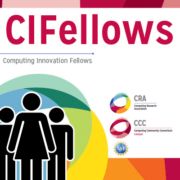 CIFellows 2022 Workshop
CIFellows 2022 Workshop
May 26, 2022 · Hilton National Mall-The Wharf
The workshop involved both the 2020 and 2021 CIFellow cohorts on May 26th in Washington, DC. We welcomed a variety of speakers, panels and networking opportunities with members of the computing research community.
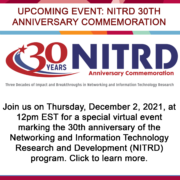 NITRD 30th Anniversary
NITRD 30th Anniversary
May 25, 2022 · The International Spy Museum
On May 25th, 2022 the 30th anniversary celebration of the Networking and Information Technology Research and Development (NITRD) program took place in-person at the International Spy Museum in Washington, DC.
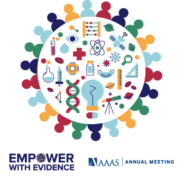 CCC at AAAS 2022
CCC at AAAS 2022
February 18-20, 2022 · Philadelphia, PA
The Computing Community Consortium (CCC) has attended and hosted sessions at the American Association for the Advancement of Science (AAAS) Annual Meeting since 2013. To learn more about the 2022 AAAS Meeting visit the webpage.
 NITRD 30th Anniversary Commemoration
NITRD 30th Anniversary Commemoration
December 2, 2021 · Virtual
On Thursday, December 2, 2021, a special virtual commemoration event was held marking the 30th anniversary of the Networking and Information Technology Research and Development (NITRD) program.
 The CCC Hybrid Workshop on Best Practices for Hybrid Workshops
The CCC Hybrid Workshop on Best Practices for Hybrid Workshops
October 14-15, 2021 · Multiple Sites
CCC planned this meta hybrid visioning activity on the technical, social, and equity challenges that hybrid environments present.
 Artificial Intelligence / Operations Research Workshop
Artificial Intelligence / Operations Research Workshop
September 23-24, 2021 · Virtual Event
CCC hosted this event to create a joint strategic vision for exploiting the synergies of the Artificial Intelligence (AI) and Operations Research (OR) communities to transform decision making.
 Physics & Engineering Issues in Adiabatic/Reversible Classical Computing
Physics & Engineering Issues in Adiabatic/Reversible Classical Computing
October 5-9, 2020 · Virtual Event
We view the basic science and engineering of reversible computers as being currently an extremely ripe area of focus for future large-scale federal research initiatives. The purpose of this workshop was to gather the research community in this field, lay a common foundation of existing state-of-the-art knowledge, and work together to prepare a comprehensive workshop report that can make the case for a major new initiative effectively to Federal level decision-makers.
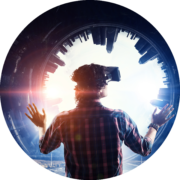 Assured Autonomy #3
Assured Autonomy #3
July 29, 2020 · Virtual Event
CCC created a roadmap for assured autonomy that will be used for building and refining research and development programs.
 NAE/CCC Workshop on the Role of Robotics in Infectious Disease Crises
NAE/CCC Workshop on the Role of Robotics in Infectious Disease Crises
July 9-10, 2020 · Virtual Event
To study the role of robotic systems in infectious disease crises, held on July 9-10 with joint sponsorship of the National Academy of Engineering (NAE) and the Computing Community Consortium (CCC).
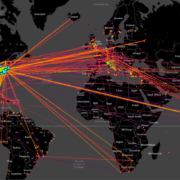 CCC / Code 8.7 Workshop on Applying AI in the Fight Against Modern Slavery
CCC / Code 8.7 Workshop on Applying AI in the Fight Against Modern Slavery
March 3-4, 2020 · Hotel Fairmont Washington D.C. Georgetown
The purpose of this workshop was to layout a research roadmap aimed at applying AI to the fight against human trafficking.
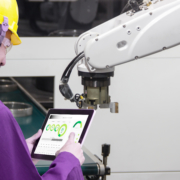 Assured Autonomy Workshop #2
Assured Autonomy Workshop #2
February 20-21, 2020 · Hyatt Regency Phoenix
This workshop identified existing capabilities, current research, and research trends that address the challenges and problems identified in workshop 1.
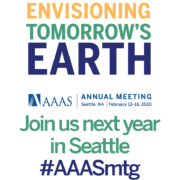 CCC at AAAS 2020
CCC at AAAS 2020
February 14-15, 2020 · Washington State Convention Center
The Computing Community Consortium (CCC) has attended and hosted sessions at the American Association for the Advancement of Science (AAAS) Annual Meeting since 2013. Below you can find links to slides and resources from the 2020 sessions and links to related CCC white papers and resources. To learn more about the 2020 AAAS Meeting visit the webpage.
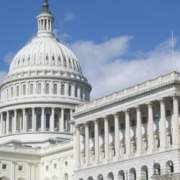 Leadership in Science Policy Institute
Leadership in Science Policy Institute
November 21-22, 2019 · InterContinental Washington D.C. - The Wharf
The Computing Research Association’s Computing Community Consortium offers its Leadership in Science Policy Institute to educate computing researchers on how science policy in the U.S. is formulated and how our government works. LiSPI features presentations and discussions with science policy experts, current and former Hill staff, and relevant agency and Administration personnel about mechanics of the legislative process, interacting with agencies, advisory committees, and the federal case for computing.
 Computational Support for Substance Use Disorder Prevention, Detection, Treatment, and Recovery
Computational Support for Substance Use Disorder Prevention, Detection, Treatment, and Recovery
November 14-15, 2019 · Kimpton Hotel Palomar
The goal of this workshop was to bring together a group of researchers with expertise in relevant content, technology, and method domains to accelerate and guide progress in this important area.
 Assured Autonomy Workshop #1
Assured Autonomy Workshop #1
October 16-17, 2019 · Sheraton Pentagon City Hotel
The workshop identified current and anticipated challenges and problems in assuring autonomous systems within and across applications/sectors.
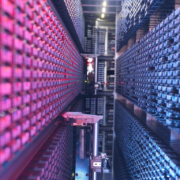 Wide-Area Data Analytics
Wide-Area Data Analytics
October 3-4, 2019 · CRA/CCC
Modern datasets are often distributed across many locations. This workshop brought together researchers and practitioners in the database, networking, distributed systems, and storage fields in order to bridge the gap in research within wide-area data analytics.
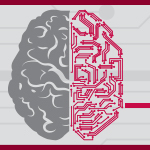 AI Roadmap
AI Roadmap
August 7, 2019 · CCC & AAAI
In fall 2018, the Computing Community Consortium (CCC) started a new initiative to create a Roadmap for Artificial Intelligence, led by Yolanda Gil (University of Southern California and President-Elect of AAAI) and Bart Selman (Cornell University). A series of three workshops were held in the Fall/Winter of 2018/2019, with the goal of identifying challenges, opportunities, and pitfalls, and create a compelling report that will effectively inform future federal priorities—including future AI R&D Investments. The final report is now available.
 Economics and Fairness
Economics and Fairness
May 22-23, 2019 · Cambridge MA
The Computing Community Consortium's (CCC) Fairness and Accountability Task Force held a visioning workshop on Economics and Fairness, May 22-23, 2019 in Cambridge, Massachusetts. This workshop brought together computer science researchers with backgrounds in algorithmic decision making, machine learning, and data science with policy makers, legal experts, economists, and business leaders to discuss methods to ensure economic fairness in a data-driven world.
 Misinformation Roundtable
Misinformation Roundtable
March 26, 2019 · Washington, DC
This roundtable brought together computer scientists along with experts from disciplines potentially to include electrical engineering, psychology, marketing, information science, and political science to discuss challenges in detecting and countering misinformation.
 Content Generation for Workforce Training
Content Generation for Workforce Training
March 14-15, 2019 · Georgia Tech Hotel and Conference Center
The CCC held a visioning workshop in Atlanta, GA in March 2019 to discuss and articulate research visions for authoring rich graphical content for new workforce training. The workshop's goal was to articulate research challenges and needs and to summarize the current state of the practice in this area.
 Code 8.7: Using Computational Science and AI to End Modern Slavery
Code 8.7: Using Computational Science and AI to End Modern Slavery
February 19-20, 2019 · United Nations, New York
Code 8.7 is a two-day conference that brings the computational research and artificial intelligence (AI) communities together with those working to achieve Target 8.7 of the Sustainable Development Goals. With Target 8.7, 193 countries agreed to take immediate and effective measures to end forced labour, modern slavery and human trafficking by 2030, and the worst forms of child labour by 2025. Computational science, AI and machine learning can accelerate our understanding of these problems and help us determine “effective measures” to address them. The featured image was made by Ira Gelb.
 Identifying Research Challenges in Post Quantum Cryptography Migration and Cryptographic Agility
Identifying Research Challenges in Post Quantum Cryptography Migration and Cryptographic Agility
January 31-February 1, 2019 · Washington, DC
The overall objective of this workshop was to identify academic research challenges in PQC migration and cryptographic agility. That is, organizers wanted to identify aspects of the complex and global migration to new public-key cryptography standards that could benefit from a more rigorous study and analysis.
 Artificial Intelligence Roadmap Workshop 3 – Self Aware Learning
Artificial Intelligence Roadmap Workshop 3 – Self Aware Learning
January 17-18, 2019 · JW Marriott San Francisco Union Square
Given the increasingly pervasive use in AI technologies in all sectors of industry and government and the enormous potential for future AI-based technologies, NSF has asked the Computing Community Consortium to organize an AI Roadmap to help prioritize research investments. The third workshop theme is Learning and Robotics and took place on January 17-18, 2019 in San Francisco. The chairs of the Self Aware Learning workshop are Fei-Fei Li (Stanford University) and Thomas G. Dietterich (Oregon State University). This is part of the AI Roadmap workshop series – view the series page here.
 Artificial Intelligence Roadmap Workshop 2 – Interaction
Artificial Intelligence Roadmap Workshop 2 – Interaction
January 8-9, 2019 · Four Seasons Hotel Denver
Given the increasingly pervasive use in AI technologies in all sectors of industry and government, and the enormous potential for future AI-based technologies, NSF has asked the Computing Community Consortium to organize an AI Roadmap to help prioritize research investments. The second workshop theme is interaction and will take place on November 14-15, 2018 in Chicago. The chairs of the interaction workshop are Kathy McKeown (Columbia University) and Dan Weld (University of Washington). This is part of the AI Roadmap workshop series – view the series page here.
 Thermodynamic Computing
Thermodynamic Computing
January 3-5, 2019 · Prince Wakiki Hotel
Thermodynamics has been a historical concern in the engineering of conventional computing systems due to its role in power consumption, scaling, and device performance. Today, we see thermodynamics re-emerging in a new role as an algorithmic technique in areas such as machine learning, annealing, quantum, and neuromorphic systems. Recent theoretical developments in non-equilibrium thermodynamics suggest thermodynamics may become the basis of a new “thermodynamic computing” paradigm. For example, it may lead to computing systems that self-organize in response to external input.
 Artificial Intelligence Roadmap Workshop 1 – Integrated Intelligence
Artificial Intelligence Roadmap Workshop 1 – Integrated Intelligence
November 14-15, 2018 · Chicago, Illinois
Given the increasingly pervasive use in AI technologies in all sectors of industry and government, and the enormous potential for future AI-based technologies, NSF has asked the Computing Community Consortium to organize an AI Roadmap to help prioritize research investments. The first workshop theme is Integrated Intelligence and will take place on November 14-15, 2018 in Chicago. The chairs of the Integrated Intelligence workshop were Marie desJardins (Simmons University) and Ken Forbus (Northwestern University). This was part of the AI Roadmap workshop series – view the series page here.
 Leadership in Embedded Security Workshop
Leadership in Embedded Security Workshop
August 12-13, 2018 · Baltimore Marriott Waterfront
The Cybersecurity Taskforce of the CCC held a leadership workshop to envision the future of embedded security research and education from hardware to cyberphysical systems to human factors.
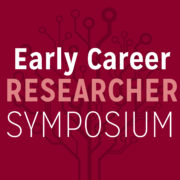 Early Career Researcher Symposium
Early Career Researcher Symposium
August 1-2, 2018 · Washington, D.C.
The workshop was 1.5 days in the Washington, DC area. It was an opportunity for attendees to meet National Science Foundation program officers as well as representatives from other agencies. The content covered at the workshop came from the 2017 CCC Symposium, recent CCC visioning workshops, and CRA programs for Career Mentoring and Leadership in Science Policy.
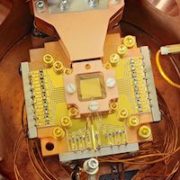 Next Steps in Quantum Computing: Computer Science’s Role
Next Steps in Quantum Computing: Computer Science’s Role
May 22-23, 2018 · The Fairmont Washington DC
While it has been known for some time that quantum computers could in principle solve problems that are intractable on today’s supercomputers such as breaking public key cryptography and solving hard computational chemistry problems, the field of quantum computing is still at an early stage. Recent progress in realizing small scale quantum computers is encouraging and these devices may scale up further in the near future. However, currently, only very few opportunities exist to bring quantum computing experts together with experts from other computer science fields with much to offer: programming languages, compiler design, computer architecture, and design automation in an exchange of ideas.
 Digital Computing Beyond Moore’s Law
Digital Computing Beyond Moore’s Law
May 3-4, 2018 · Parc 55 - San Francisco, California
The historical increases in computing performance and reductions in power consumption, size, weight and cost of computing devices are ingrained in the fabric of the research community. These improvements have fueled innovation across scientific domains, health, industry, and government. But clock speeds have been relatively flat for over a decade and current transistor scaling will be reaching limits that are both technological and economic over the next decade. While alternative models of computation are being explored, including quantum and neuro-inspired, digital computing will remain the dominant computational technology for the foreseeable future.
 Robotic Materials
Robotic Materials
April 23-24, 2018 · The Keck Center
The Robotic Materials workshop showcased some of the ongoing interdisciplinary work at the intersection of computing, robotics, and material science.
 Sociotechnical Interventions for Health Disparity Reduction: A Research Agenda
Sociotechnical Interventions for Health Disparity Reduction: A Research Agenda
April 9-10, 2018 · New Orleans Riverside Hilton
In this cross-disciplinary workshop, we brought together leading researchers in computing, health informatics, and behavioral medicine to develop an integrative research agenda regarding sociotechnical interventions to reduce health disparities and improve the health of socio-economically disadvantaged populations. As part of these discussions, approaches for guarding against unintended consequences of general interventions were also explored. To do so, this workshop focused on integrating insights and findings from each of these fields, identifying gaps in understanding between fields, and surfacing opportunities for future interdisciplinary research to address relevant challenges.
 Fair Representations and Fair Interactive Learning
Fair Representations and Fair Interactive Learning
March 18-19, 2018 · The Westin Philadelphia
This workshop aimed to identify key challenges and open questions that currently limit both our theoretical understanding of fairness and machine learning, and their applicability in practice.
 Leadership in Science Policy Institute
Leadership in Science Policy Institute
November 6-7, 2017 · Hotel Sofitel
The Computing Research Association’s Computing Community Consortium offers its Leadership in Science Policy Institute to educate computing researchers on how science policy in the U.S. is formulated and how our government works. LiSPI features presentations and discussions with science policy experts, current and former Hill staff, and relevant agency and Administration personnel about mechanics of the legislative process, interacting with agencies, advisory committees, and the federal case for computing.
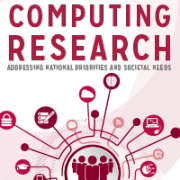 Computing Research: Addressing National Priorities and Societal Needs 2017
Computing Research: Addressing National Priorities and Societal Needs 2017
October 23-24, 2017 · The InterContinental Washington D.C. at the Wharf
Over the past 11 years, the Computing Community Consortium has hosted dozens of research visioning workshops to imagine, discuss, and debate the future of computing and its role in addressing societal needs. The second CCC Computing Research symposium drew these topics into a program designed to illuminate current and future trends in computing and the potential for computing to address national challenges.
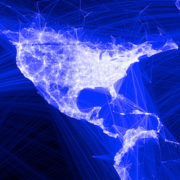 Sociotechnical Cybersecurity Workshop 2
Sociotechnical Cybersecurity Workshop 2
August 8-9, 2017 · San Diego
Information and Communications Technology (ICT) has taken a central role in modern society. Unfortunately, malicious hackers and cybercrime have become a stubborn and expensive part of the ICT landscape. This has made providing cybersecurity a defining challenge for our era. Many strategic plans and National Academies of Sciences (NAS) studies have been written, and billions of dollars have been spent on the development and deployment of innovative cybersecurity solutions, but our network infrastructure, devices and organizations are increasingly insecure against threats.
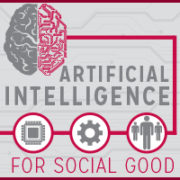 AAAI Symposium on AI for Social Good
AAAI Symposium on AI for Social Good
March 27-29, 2017 · Stanford University
A rise in real-world applications of AI has stimulated significant interest from the public, media, and policy makers, including the White House Office of Science and Technology Policy (OSTP). Along with this increasing attention has come media-fueled concerns about purported negative consequences of AI, which often overlooks the societal benefits that AI is delivering and can deliver in the near future. This symposium focused on the promise of AI across multiple sectors of society. We brought together AI researchers and researchers/practitioners/experts/policy makers from a wide variety of domains.
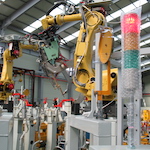 Cyber Security for Manufacturers Workshop
Cyber Security for Manufacturers Workshop
March 14-15, 2017 · Washington D.C.
On March 14-15, 2017 MForesight: The Alliance for Manufacturing Foresight, in collaboration with the Computing Community Consortium (CCC), convened a workshop to address cyber-physical security challenges faced by U.S. manufacturers of all sizes.
 Cyber-Social Learning Systems Workshop 3
Cyber-Social Learning Systems Workshop 3
January 24-25, 2017 · Washington, DC
Over the last decade, we have made enormous progress establishing scientific and engineering principles for cyber-physical systems (CPS). The next major frontier in science and engineering research and development, is the integration of cyber-physical with human and social systems and phenomena at all scales. Closing the loop from sensing to performance at all scales will give rise to cyber-social learning systems. This is part of a workshop series – view the series page.
 Sociotechnical Cybersecurity Workshop 1
Sociotechnical Cybersecurity Workshop 1
December 12-13, 2016 · College Park Marriott Hotel & Conference Center
Information and Communications Technology (ICT) has taken a central role in modern society. Unfortunately, malicious hackers and cybercrime have become a stubborn and expensive part of the ICT landscape. This has made providing cybersecurity a defining challenge for our era. Many strategic plans and National Academies of Sciences (NAS) studies have been written, and billions of dollars have been spent on the development and deployment of innovative cybersecurity solutions, but our network infrastructure, devices and organizations are increasingly insecure against threats.
 Discovery and Innovation in Smart and Pervasive Health
Discovery and Innovation in Smart and Pervasive Health
December 5-6, 2016 · Washington D.C.
There is a desire to update the strategic research priorities informing investments in Smart Health research. Workshops in 2009 and 2012, partially hosted by the CCC, resulted in two white papers that informed programs such as the joint NSF and NIH Smart and Connected Health research program.
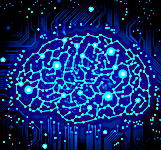 Symposium on Accelerating Science: A Grand Challenge for AI
Symposium on Accelerating Science: A Grand Challenge for AI
November 17-19, 2016 · Westin Arlington Gateway
The AAAI Fall Symposium on Accelerating Science: A Grand Challenge for AI (co-sponsored by AAAI and the CRA Computing Community Consortium) aimed to bring together researchers in relevant areas of artificial intelligence, high performance data and computing infrastructures and services, and selected application areas to discuss progress on, and articulate a research agenda aimed at addressing, the AI grand challenge of accelerating science.
 Cyber-Social Learning Systems Workshop 2
Cyber-Social Learning Systems Workshop 2
November 2-3, 2016 · Graduate Hotel, Ann Arbor
Over the last decade, we have made enormous progress establishing scientific and engineering principles for cyber-physical systems (CPS). The next major frontier in science and engineering research and development, is the integration of cyber-physical with human and social systems and phenomena at all scales. Closing the loop from sensing to performance at all scales will give rise to cyber-social learning systems. This was part of a workshop series – view the series page.
 Nanotechnology-Inspired Information Processing Systems of the Future
Nanotechnology-Inspired Information Processing Systems of the Future
August 31-September 1, 2016 · Fairmont Hotel
Traditionally, computing systems have relied on scaling of transistor feature sizes for enhancing energy efficiency, throughput, performance, functional density, and most importantly cost (per component). Unfortunately the benefits gained from further scaling are greatly reduced. Future computing systems need to overcome the fundamental efficiency‐robustness barrier in order to continue to have societal‐scale impact. A key requirement is to envision this future as a convergence of three domains – emerging applications, alternative computational models and architectures, and beyond CMOS nanofabrics. A compelling vision of future computing systems would be one where the application level metrics are accounted for during design, where statistical, hysteretic, and other attributes of nanoscale fabrics could be exploited for designing computational primitives such as nanofunctions required by these applications, and where alternative models for computing could be leveraged to design systems meeting application‐level requirements. Achieving this vision calls for a journey from systems‐to‐nanofabrics and back.
 Cyber-Social Learning Systems Workshop 1
Cyber-Social Learning Systems Workshop 1
August 29-30, 2016 · Fairmont Olympic Hotel
Over the last decade, we have made enormous progress establishing scientific and engineering principles for cyber-physical systems (CPS). The next major frontier in science and engineering research and development, is the integration of cyber-physical with human and social systems and phenomena at all scales. Closing the loop from sensing to performance at all scales will give rise to cyber-social learning systems. This was part of a workshop series – view the series page.
 Architecture 2030 Workshop @ ISCA 2016
Architecture 2030 Workshop @ ISCA 2016
June 19, 2016 · ISCA 2016
The goal of this first Architecture 2030 Workshop was to kick off a new round of visioning activities in a public forum, on where our constituents believe the field is headed, what challenges and opportunities exist, and how we can continue to communicate our impact beyond our discipline. The workshop was mostly discussion based, with breakout sessions and report-outs. The workshop was Sunday, June 19th, 2016.
 Artificial Intelligence For Social Good
Artificial Intelligence For Social Good
June 7, 2016 · The Willard Intercontinental Hotel
There has been a dramatically increasing interest in Artificial Intelligence (AI) in recent years. AI has been successfully applied to societal challenge problems and it has a great potential to provide tremendous social good in the future. In this workshop, we discussed the successful deployments and the potential use of AI in various topics that are essential for social good, including but not limited to urban computing, health, environmental sustainability and social welfare/disadvantaged segments of society.
 Computing Research: Addressing National Priorities and Societal Needs
Computing Research: Addressing National Priorities and Societal Needs
May 9-10, 2016 · Washington, DC
Over the past 10 years, the Computing Community Consortium has hosted dozens of research visioning workshops to imagine, discuss, and debate the future of computing and its role in addressing societal needs. This symposium drew these topics into a program designed to illuminate current and future trends in computing and the potential for computing to address national challenges.
 Privacy by Design – Catalyzing Privacy by Design
Privacy by Design – Catalyzing Privacy by Design
January 6-7, 2016 · Washington, D.C.
Frontiers in Regulation and Management. This workshop reviewed the lessons from workshops #1-3 and examined how existing regulatory models, along with other factors, shaped organizations’ understanding of privacy problems, approaches, and solutions. Building on workshop-generated insights on the strengths and limitations of current approaches—in terms of concepts, incentives, actors—the workshop considered how well regulatory models respond to privacy-by-design challenges, and identified open research questions.
This was part of a series of workshops - view the series page
 Computer-Aided Personalized Education
Computer-Aided Personalized Education
November 12-13, 2015 · Washington D.C.
The demand for education in STEM fields is exploding, and universities and colleges are straining to satisfy this demand. In the case of Computer Science, for example, the number of US students enrolled in introductory courses has grown three-fold in the past decade.
 Promoting Strategic Research on Inclusive Access to Rich Online Content and Services
Promoting Strategic Research on Inclusive Access to Rich Online Content and Services
September 24-25, 2015 · Washington D.C
This workshop addressed challenges and opportunities surrounding access to online content and services, including rich, non-text content. Consumers are increasingly relying on online information for guidance on matters of health, education, and other important topics. Our ability to provide online access for consumers generally, including people with disabilities, must keep pace.
 Privacy by Design – Engineering Privacy
Privacy by Design – Engineering Privacy
August 31-September 1, 2015 · Pittsburgh, PA
This workshop surveyed emerging challenges in engineering privacy from applications of cryptographic protocols and privacy-preserving databases, to formal notations and programming languages in identity management, de-identification, and software specification. This survey reviewed known challenges, such as understanding privacy policies (e.g., privacy laws in regulated sectors like healthcare and finance; privacy promises in self-regulated sectors like Web services) in computational terms so that tools can be developed to help with their enforcement, which includes conflicts introduced by cross-references from one legal text to another, difficulties reflecting use based models, modeling business process’ compliance with the law; and policy weaknesses exposed by computer scientists that limit the utility of translation for privacy protection (e.g., the atomic view of information types that ignores statistical correlations leading to weak de-identification requirements and ineffective approaches to privacy-preserving big data analytics).
This was part of a series of workshops - view the series page.
 Theoretical Foundations for Social Computing
Theoretical Foundations for Social Computing
June 29-30, 2015 · Washington D.C.
Social computing encompasses the mechanisms through which people interact with computational systems---for instance, crowdsourcing platforms, ranking and recommendation systems, online prediction markets, or collaboratively edited wikis. Social computing is blossoming into a rich research area of its own, with contributions from diverse disciplines spanning computer science, economics, sociology, systems research, and HCI, to name just a few.
 Privacy by Design – Privacy Enabling Design
Privacy by Design – Privacy Enabling Design
May 7-8, 2015 · Georgia Tech Hotel and Conference Center
This workshop covered the latest research results in user interface design, usability and human factors including studies of user behavior and recent findings in privacy displays, nudging, privacy preference modeling, to name a few. While regulators attempt to drive privacy-by-design, there is little evidence that the class of professionals who consider themselves designers are engaged in the conversation. Workshops at CHI, and SOUPS continue to generate interesting research and spark conversation, however our efforts to identify designers in industrial innovators who are fluent in privacy—in any form—has come up relatively empty. Surely privacy, like other human values, is a source of norms and expectations that influences how designers approach their work, however, we do not have a good sense of how they approach it, whether they use distinct methodologies or tools to do so, and what concepts guide their inquiries.
This was part of a series of workshops - view the series page.
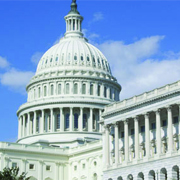 Leadership in Science Policy Institute
Leadership in Science Policy Institute
April 27-28, 2015 · Hotel Sofitel, Washington, DC
The CCC will provide funds for hotel accommodations for two nights of local expenses (hotel, meals) for the April 27-28 workshops. Nominees are expected to pay their own travel expenses, though there will be a limited fund available for participants who cannot attend unless their travel is provided.
 Privacy by Design – State of Research and Practice
Privacy by Design – State of Research and Practice
February 5-6, 2015 · Berkeley, CA
Regulators, academics and industry have called for privacy-by-design as a way to address growing privacy concerns with rapidly developing technology. The public and private sector are responding — hiring privacy engineers to join the ranks of privacy-oriented professionals, often working under the guidance of a chief privacy officer. Yet, implementing concepts of privacy through design is an open challenge and research area. There is a limited, disparate, and fragmented body of research affirmatively positioned as privacy-by-design. The first workshop of the series, highlighting the key insights, questions, themes, disagreements, and further barriers to actionable progress.
This was part of a series of workshops - view the series page.
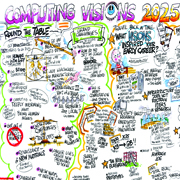 2025 Roundtable
2025 Roundtable
January 22-23, 2015 · Arlington, VA
The Visions 2025 initiative is intended to inspire the computing community to envision future trends and opportunities in computing research. Where is the computing field going over the next 10-15 years? What are potential opportunities, disruptive trends, and blind spots? Are there new questions and directions that deserve greater attention by the research community and new investments in computing research?
 Extensible Distributed Systems Workshop
Extensible Distributed Systems Workshop
January 21-22, 2015 · Le Méridien in Arlington, VA
A Distributed System is a system consisting of multiple computers communicating through message passing. In the past 50 years, distributed systems have evolved from being a novelty to a fact of life---a very large fraction of computers today are part of a distributed system.
Through five sessions, the workshop (a) discussed the gap between the current foundations that the distributed systems community has developed and the challenges and opportunities offered by today’s applications and infrastructure, and (b) identified possible solutions.
 Brain Workshop
Brain Workshop
December 3-5, 2014 · Hotel Sofitel
Computer science and brain science share deep intellectual roots – after all, computer science sprang out Alan Turing’s musings about the brain in the spring of 1936. Today, understanding the structure and function of the human brain is one of the greatest scientific challenges of our generation.
 Uncertainty in Computation Workshop
Uncertainty in Computation Workshop
October 15-16, 2014 · Omni Shoreham Hotel
Modern science, technology, and politics are all permeated by data that comes from people, measurements, or computational processes. However, data is often incomplete, corrupt, or lacking in sufficient accuracy and precision. While concern for these uncertainties would seem essential to rational decision making, explicit consideration of uncertainty is rarely part of the computational and decision making pipeline. Now is the appropriate time to hold a discussion about future research directions related to the modeling of uncertainty in computations and the ways in which the uncertainty inherent in many computational processes can be communicated to those tasked with making decisions based on such data.
 Aging In Place
Aging In Place
September 10-11, 2014 · National Institutes of Health
This workshop brought together needed interdisciplinary expertise, assessed the state of the science at the human, medical, and technology levels, and articulated a research vision for a systems engineering approach to the development of technologies and solutions to support the home management of persons with significant chronic diseases and their family care providers.
 Human Computation Roadmap Summit
Human Computation Roadmap Summit
June 18-20, 2014 · The Woodrow Wilson International Center for Scholars
Human Computation entails the design and analysis of information processing systems in which humans participate as computational elements. This visioning activity sought community input to map a path from interdisciplinary research to human computation applications with the greatest societal benefit and impact.
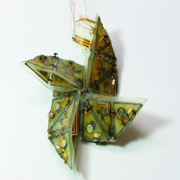 The New Making Renaissance: Programmable Matter and Things
The New Making Renaissance: Programmable Matter and Things
June 3-4, 2014 · Harvest Inn
The goal of this workshop was to inspire the computing community to envision future trends and opportunities within this critical emerging landscape. Where are the potential opportunities, disruptive trends, and blind spots? Are there new questions and directions that deserve greater attention by the research community and new investments in computing research?
 Interacting with the Computers All Around Us
Interacting with the Computers All Around Us
May 12-13, 2014 · J.W. Marriott
This workshop covered the growing challenges and promising technological trends in how people will interact with computing around them in efficient, correct, and humanly pleasing manners.
 CRA/CCC Workshop on Extreme Scale Design Automation
CRA/CCC Workshop on Extreme Scale Design Automation
February 21-22, 2014 · Embassy Suites at University of South Florida
Design automation tools have been an enabling force in the computing revolution. Beginning in the 1970s, rapid advances have allowed semiconductor chips to evolve from a handful of transistors to modern processors and systems with billions devices.
This was part of a series of workshops - view the series page.
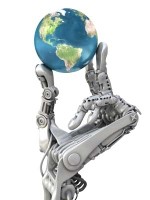 Robotics, Manufacturing, and Computing
Robotics, Manufacturing, and Computing
October 21, 2013 · White House Conference Center
The National Science Foundation, Robotics-VO, Computing Community Consortium, and The White House Office of Science and Technology Policy held a workshop on October 21, 2013 to identify opportunities, challenges, and avenues in manufacturing, robotics, and computing.
 Extreme Scale Design Automation Workshop
Extreme Scale Design Automation Workshop
March 7-8, 2013 · University Club at University of Pittsburgh
This series of three workshops identified critical directions for electronic design automation in support of extreme scale design. Each of the workshops featured keynote speakers to frame the key issues, followed by breakout group sessions in which participants engaged in open discussion. Participants had opportunities to present their views and observations. Prior to each workshop, a set of survey questions were be provided, to further focus the discussions.
This was part of a series of workshops - view the series page.
 Privacy R&D
Privacy R&D
March 4, 2013 · ITIF
Exploring the development of an R&D road map for privacy.
The workshop was structured in two parts. The first part had four “domain” panels with government, industry, and academic representatives on each panel. The purpose of these panels was to elucidate the “domain” needs of a sector and in that context, the technical capabilities and opportunities for the research community. The second part of the workshop focused on developing a consensus statement on the need for a concerted effort to address privacy R&D and developing a strategy for communicating this consensus statement to relevant stakeholders. The workshop concluded with a reception.
 Midscale Infrastructure Investments for Computing Research
Midscale Infrastructure Investments for Computing Research
March 1, 2013 · Washington, DC
The Computing Community Consortium (CCC) is sought community input to better understand the potential needs and payoff for additional investments in mid-scale infrastructure for computing research.
We were specificallt interested in “mid-scale” infrastructure investments, defined as investments of over $4 million but under $100 million. Infrastructure investments in the $100,000 - $4 million range are accommodated by NSF’s Major and Computing Research Instrumentation (MRI and CRI) programs. Infrastructure investments of $100 million or more fall under NSF’s Major Research Equipment and Facilities Construction (MREFC) Program. GENI, PlanetLab, Orbit, FutureGrid, and Emulab are examples of mid-scale infrastructure investments with significant impacts on our field.
 Multidisciplinary Research for Online Education Workshop
Multidisciplinary Research for Online Education Workshop
February 11-12, 2013 · Grand Hyatt
Participants explored computer science and multidisciplinary research agendas designed to improve formal and informal education. The workshop built on CCC’s earlier visioning activities on Global Resources for Online Education (GROE), addressing education-relevant research in areas such as intelligent student modeling through data mining, mobile computing for data logging, social networking, serious games, intelligent learning environments, HCI to facilitate educational interactions, computer-supported collaborative learning, interactive visualizations and simulations, and many other areas, to include research at the interface of computing and the social/behavioral sciences. While the workshop built on a rich existing landscape of cyber-enabled education research, it was also informed by very recent developments, such as massively open online courses (MOOCs), that make important dimensions of scale and openness explicit.
 Convergence of Software Assurance Methodologies and Trustworthy Semiconductor Design and Manufacture (SA+TS)
Convergence of Software Assurance Methodologies and Trustworthy Semiconductor Design and Manufacture (SA+TS)
January 15-16, 2013 · Le Méridien
Ensuring that a computer chip or other semiconductor-based component does exactly what it the customer wants it to do—nothing else—is becoming more challenging. Feature sizes continue to shrink and are measured in nanometers, circuits are more complex, and design and manufacture involves a supply chain, typically comprising many businesses worldwide.
Participation in the one-and-a-half day workshop was by invitation only. The output will be a report outlining the problems and areas of research that have the potential to lead to solutions.
 Computing and Healthcare: New Opportunities and Directions
Computing and Healthcare: New Opportunities and Directions
October 11-12, 2012 · Bethesda, MD
The opportunity for innovation is enhanced by the increasing availability of health data, the drop in cost and ubiquity of powerful, networked sensors and computing devices, and the increasing competency of methods and algorithms for analyzing data to provide insights, diagnoses, predictions, and recommendations.
This was part of a series of workshops on Health IT - view the series page.
 Spatial Computing Workshop
Spatial Computing Workshop
September 10-11, 2012 · Keck Center
Spatial Computing is a set of ideas and technologies that will transform our lives by understanding the physical world, knowing and communicating our relation to places in that world, and navigating through those places.
This one-and-a-half-day NSF/CCC sponsored visioning workshop on Spatial Computing outlined an effort to develop and promote a unified agenda for Spatial Computing research and development across US agencies, industries, and universities.
 Computing for Disaster Management Workshop
Computing for Disaster Management Workshop
June 25, 2012 · Washington, DC
New research in computing technology can advance emergency response and recovery, while also driving forward the computer science and engineering fields.
This one-and-a-half-day National Science Foundation (NSF)/Computing Community Consortium (CCC) co-sponsored visioning workshop on computing for disaster management identified ways in which fundamental computing research in the broadest terms can advance the field of emergency response and recovery.
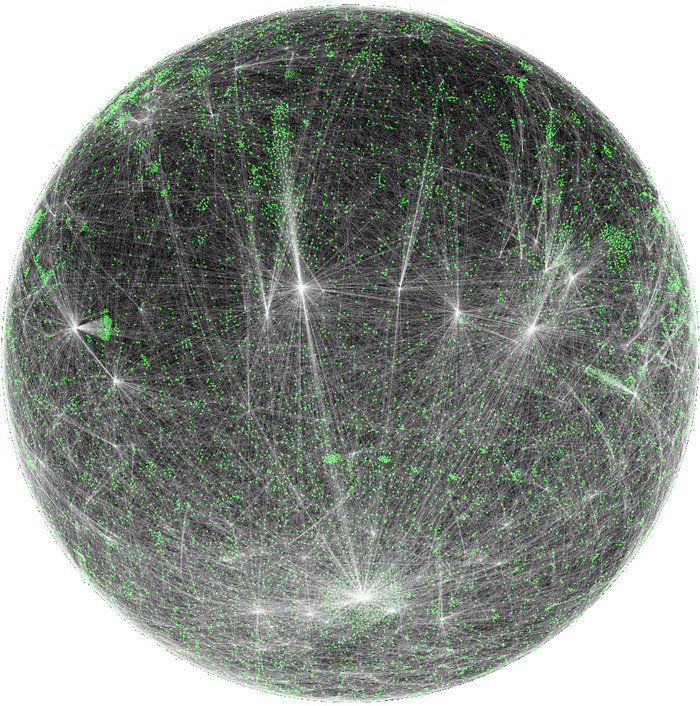 NITRD Symposium
NITRD Symposium
February 16, 2012 · Newseum, Washington DC
On February 16, 2012, more than 150 federal officials, Congressional staffers, academic researchers, and industry leaders packed a room overlooking the United States Capitol to mark two decades of coordinated federal investment in networking and information technology research and development. The daylong symposium, titled “The Impact of NITRD: Two Decades of Game-Changing Breakthroughs in Networking and Information Technology—Expanding Possibilities Ahead,” explored progress and prospects in the field.
 Role of Information Sciences and Engineering in Sustainability
Role of Information Sciences and Engineering in Sustainability
February 3-4, 2011 · Hyatt Regency, Capitol Hill
Role of Information Sciences and Engineering in Sustainability (RISES) Workshop, was sponsored by the National Science Foundation and the Computing Community Consortium.
 Ultra-large-scale Interaction
Ultra-large-scale Interaction
October 25-27, 2010 · Chicago, IL
A byproduct of the Internet's success is that large numbers of people can interact with each other and with large stores of loosely interconnected data. This workshop created an agenda for interactions that involve thousands of participants.
 Persuasive Experiences
Persuasive Experiences
September 23-25, 2010 · Burbank, CA
A culture is defined by its shared stories and the messages that people communicate with each other. Computing has created new ways for stories to be told in entertainment and education. This workshop outlined how we can bring digital storytelling from the realm of multimillion dollar productions down to the practical needs of everyday social, educational and political discourse.
 Advancing Computer Workshops on Advancing Computer Architecture Research (ACAR) II
Advancing Computer Workshops on Advancing Computer Architecture Research (ACAR) II
September 20-21, 2010 · Seattle, WA
Discontinuity-inducing trends (e.g., the arrival of multi/many-cores, the reduced reliability of semiconductors, and the ever-presence of power constraints) are transforming the field of computer architecture. Momentous changes should be expected in all domains, including portable clients, home and business computing, and datacenter/petascale computing.
 Interactive System Architecture
Interactive System Architecture
August 11-13, 2010 · Snake River Lodge
The last few decades have produced many new interactive technologies and many interactive techniques. Few of them are making their way into actual use because they are so hard to integrate. This workshop created an agenda for new architectures for building interactive systems that integrate basic interaction in powerful new ways and provide new opportunities and foundations on which to build usable systems.
 Advancing Computer Workshops on Advancing Computer Architecture Research (ACAR) I
Advancing Computer Workshops on Advancing Computer Architecture Research (ACAR) I
February 22-23, 2010 · San Diego, CA
Discontinuity-inducing trends (e.g., the arrival of multi/many-cores, the reduced reliability of semiconductors, and the ever-presence of power constraints) are transforming the field of computer architecture. Momentous changes should be expected in all domains, including portable clients, home and business computing, and datacenter/petascale computing.
 Cross-Layer Reliability (RELXLAYER) Third Meeting
Cross-Layer Reliability (RELXLAYER) Third Meeting
October 29-30, 2009 · IBM Austin Research Laboratory
The Cross-layer Reliability (RelXLayer) visioning process addresses the fact that we will no longer be able to reliably design or manufacture fault-free hardware systems.
 Discovery and Innovation in Health IT Workshop
Discovery and Innovation in Health IT Workshop
October 29-30, 2009 · Parc 55 Hotel
This invitation only workshop—co-sponsored by the CCC, the National Science Foundation, the Office of the National Coordinator for Health Information Technology, the National Institute of Standards and Technology, the National Library of Medicine, the Agency for Healthcare Research and Quality, and the American Medical Informatics Association—brought together leading researchers in health information technology to discuss future research directions in this area.
This was part of a series of workshops on Health IT - view the series page.
 Global Development Workshop
Global Development Workshop
August 1-2, 2009 · Berkeley, CA
Approximately fifty participants gathered in Berkeley to discuss the future of Computer Science research supporting global socioeconomic development. Over a rich two days of discussion, deliberation and decision-making, we arrived at major decisions, identified contentious points for further discussion, and decided on next steps for the community.
 Cross-Layer Reliability (RELXLAYER) Second Meeting
Cross-Layer Reliability (RELXLAYER) Second Meeting
July 8-9, 2009 · Fuller Lodge
The Cross-layer Reliability (RelXLayer) visioning process addresses the fact that we will no longer be able to reliably design or manufacture fault-free hardware systems.
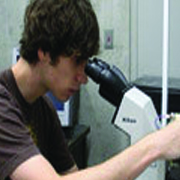 Workshop: Forum on the Future of Educational Technology
Workshop: Forum on the Future of Educational Technology
July 4-5, 2009 · Thistle Brighton Hotel
All meetings, breaks and meals took place at Thistle Brighton Hotel (this forum was convened just prior to AIED meetings which were held in the same hotel).
 A Roadmap for US Robotics
A Roadmap for US Robotics
May 21-22, 2009 · CRA/CCC
Over the last two decades, the internet has—in many ways—transformed our daily lives from work routines to social networking. The internet is an impressive media for interconnecting computers. However, almost all these computers are passive devices with no or very limited facilities for interaction with the physical world. Robots—on the other hard—are devices designed to interact intelligently with the environment. Over the next decade or two the prediction is that robotics will impact our daily lives in manners that, at least, matches the way the internet has impacted our life.
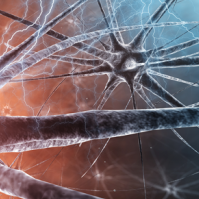 New Forms of Industry – Academy Partnership in CPS Research
New Forms of Industry – Academy Partnership in CPS Research
May 19, 2009 · Fairfax, Virginia
This by-invitation-only workshop was organized to discuss the unique needs and challenges of industry – academy partnership in Cyber Physical Systems (CPS) research.
 Workshop: Future of Educational Technology
Workshop: Future of Educational Technology
April 23-26, 2009 · Arizona State University
All activities within walking distance in downtown Tempe, AZ. Meetings held at the ASU School of Engineering and Informatics; three working lunches served in the meeting rooms; two group dinners arranged at nearby local restaurants; participants stayed at the nearby Mission Palms Hotel.
 Cyber-Physical Systems Week
Cyber-Physical Systems Week
April 13-16, 2009 · San Francisco CA
The CPSWeek brings together three leading conferences: RTAS, IPSN and HSCC as well as several workshops and tutorials on various aspects on the research and development of cyber-physical systems.
 Cross-Layer Reliability (RELXLAYER) First Meeting
Cross-Layer Reliability (RELXLAYER) First Meeting
March 26-27, 2009 · Intel Santa Clara
The Cross-layer Reliability (RelXLayer) visioning process addressed the fact that we will no longer be able to reliably design or manufacture fault-free hardware systems.
 Network Design and Societal Values
Network Design and Societal Values
September 24-25, 2008 · Arlington, VA
Digital electronic networks have emerged as one of the most powerful and exciting technologies of the late 20th and early 21st centuries, embodying and promoting wide ranging societal and individual aspirations to create, produce, communicate, buy, sell, organize, connect, associate, educate, learn, entertain, campaign, and collaborate on a local, community, national, and global scale.
 NetSE Informational Meeting
NetSE Informational Meeting
September 5, 2008 · Arlington, VA
The NetSE informational meeting on September 5, 2008 was an opportunity for the community to hear Jeannette Wing, the NSF AD for CISE, discuss NetSE and the vision behind the cross-cutting initiative, and to hear from various Division Directors and Program Officers at NSF about the objectives, scope and logistics of the NetSE program.
 Network Design in the NetSE Context
Network Design in the NetSE Context
August 17-18, 2008 · Seattle, WA
The meeting was organized around five sessions on Architecture, Adaptability, Accessibility, Accountability and Edge/Enterprise Networks. Each session consisted of 1-2 talks of 15 minutes, followed by discussion.
 Behavior, Computation, and Networks in Human Subject Experimentation
Behavior, Computation, and Networks in Human Subject Experimentation
July 31-August 1, 2008 · La Jolla, CA
The fundamental premise of the workshop was that the computer science, economics, game theory and sociology communities have been engaged for some time now in healthy and vibrant interaction on theoretical topics, and that the natural and most important next frontier is to introduce a behavioral and experimental component to this exchange.
 Network Science and Network Design
Network Science and Network Design
July 29-30, 2008 · Marina Del Rey, CA
This workshop was intended to bring together researchers from the spectrum of communities that had an interest in network science, network design, and the relationship between them.
 Theory of Networked Computation
Theory of Networked Computation
June 11, 2008 · Boston, MA
The increasing prominence of the Internet, the Web, and large data-networks in general has profoundly affected social and commercial activity. It has also wrought one of the most profound shifts in Computer Science since its inception.
 Theoretical Computer Science Workshop
Theoretical Computer Science Workshop
May 17, 2008 · University of Washington
The goals of the visioning workshop were to identify broad research themes within theoretical computer science (TCS) that have potential for a major impact in the future and to distill these research directions into compelling "nuggets" that can quickly convey their importance to a layperson.
 Cyber-Physical Systems Summit
Cyber-Physical Systems Summit
April 24-25, 2008 · St. Louis, Missouri
Lead for effort: Jack Stankovic (University of Virginia) CCC Council Liaison for this effort: Anita Jones (University of Virginia)
 CIFellows 2022 Workshop
CIFellows 2022 Workshop
May 26, 2022 · Hilton National Mall-The Wharf
The workshop involved both the 2020 and 2021 CIFellow cohorts on May 26th in Washington, DC. We welcomed a variety of speakers, panels and networking opportunities with members of the computing research community.
 NITRD 30th Anniversary
NITRD 30th Anniversary
May 25, 2022 · The International Spy Museum
On May 25th, 2022 the 30th anniversary celebration of the Networking and Information Technology Research and Development (NITRD) program took place in-person at the International Spy Museum in Washington, DC.
 CCC at AAAS 2020
CCC at AAAS 2020
February 14-15, 2020 · Washington State Convention Center
The Computing Community Consortium (CCC) has attended and hosted sessions at the American Association for the Advancement of Science (AAAS) Annual Meeting since 2013. Below you can find links to slides and resources from the 2020 sessions and links to related CCC white papers and resources. To learn more about the 2020 AAAS Meeting visit the webpage.
 Code 8.7: Using Computational Science and AI to End Modern Slavery
Code 8.7: Using Computational Science and AI to End Modern Slavery
February 19-20, 2019 · United Nations, New York
Code 8.7 is a two-day conference that brings the computational research and artificial intelligence (AI) communities together with those working to achieve Target 8.7 of the Sustainable Development Goals. With Target 8.7, 193 countries agreed to take immediate and effective measures to end forced labour, modern slavery and human trafficking by 2030, and the worst forms of child labour by 2025. Computational science, AI and machine learning can accelerate our understanding of these problems and help us determine “effective measures” to address them. The featured image was made by Ira Gelb.
 Early Career Researcher Symposium
Early Career Researcher Symposium
August 1-2, 2018 · Washington, D.C.
The workshop was 1.5 days in the Washington, DC area. It was an opportunity for attendees to meet National Science Foundation program officers as well as representatives from other agencies. The content covered at the workshop came from the 2017 CCC Symposium, recent CCC visioning workshops, and CRA programs for Career Mentoring and Leadership in Science Policy.
 Computing Research: Addressing National Priorities and Societal Needs 2017
Computing Research: Addressing National Priorities and Societal Needs 2017
October 23-24, 2017 · The InterContinental Washington D.C. at the Wharf
Over the past 11 years, the Computing Community Consortium has hosted dozens of research visioning workshops to imagine, discuss, and debate the future of computing and its role in addressing societal needs. The second CCC Computing Research symposium drew these topics into a program designed to illuminate current and future trends in computing and the potential for computing to address national challenges.
 AAAI Symposium on AI for Social Good
AAAI Symposium on AI for Social Good
March 27-29, 2017 · Stanford University
A rise in real-world applications of AI has stimulated significant interest from the public, media, and policy makers, including the White House Office of Science and Technology Policy (OSTP). Along with this increasing attention has come media-fueled concerns about purported negative consequences of AI, which often overlooks the societal benefits that AI is delivering and can deliver in the near future. This symposium focused on the promise of AI across multiple sectors of society. We brought together AI researchers and researchers/practitioners/experts/policy makers from a wide variety of domains.
 Symposium on Accelerating Science: A Grand Challenge for AI
Symposium on Accelerating Science: A Grand Challenge for AI
November 17-19, 2016 · Westin Arlington Gateway
The AAAI Fall Symposium on Accelerating Science: A Grand Challenge for AI (co-sponsored by AAAI and the CRA Computing Community Consortium) aimed to bring together researchers in relevant areas of artificial intelligence, high performance data and computing infrastructures and services, and selected application areas to discuss progress on, and articulate a research agenda aimed at addressing, the AI grand challenge of accelerating science.
 Artificial Intelligence For Social Good
Artificial Intelligence For Social Good
June 7, 2016 · The Willard Intercontinental Hotel
There has been a dramatically increasing interest in Artificial Intelligence (AI) in recent years. AI has been successfully applied to societal challenge problems and it has a great potential to provide tremendous social good in the future. In this workshop, we discussed the successful deployments and the potential use of AI in various topics that are essential for social good, including but not limited to urban computing, health, environmental sustainability and social welfare/disadvantaged segments of society.
 Computing Research: Addressing National Priorities and Societal Needs
Computing Research: Addressing National Priorities and Societal Needs
May 9-10, 2016 · Washington, DC
Over the past 10 years, the Computing Community Consortium has hosted dozens of research visioning workshops to imagine, discuss, and debate the future of computing and its role in addressing societal needs. This symposium drew these topics into a program designed to illuminate current and future trends in computing and the potential for computing to address national challenges.






